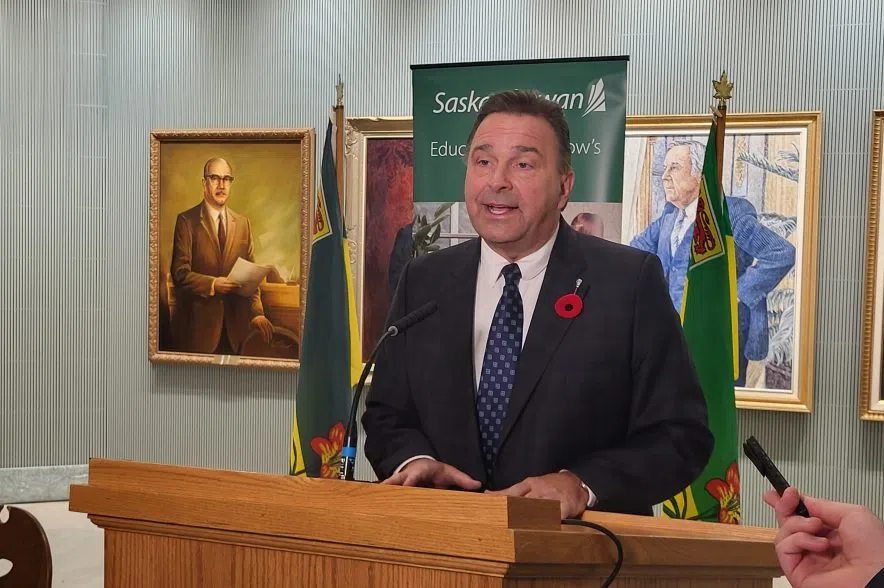The Government of Saskatchewan announced extra financial support for post-secondary education on Monday.
Advanced Education Minister Ken Cheveldayoff announced that the province was providing $250 million in additional funding to post-secondary institutions over the next four years.
Read more:
- Faculty associations say Sask. Polytech layoffs threaten key sectors in province
- University enrolment cap rob schools of cultural diversity: USask
- Sask. Polytechnic cuts 25 more jobs, NDP and faculty sound alarm
The new agreement will increase the annual operating budgets of post-secondary institutions by three per cent each year on top of the existing one per cent increase provided in the 2025-26 budget.
The memorandum of understanding will also lower the annual tuition limit from four per cent to a range of zero to three per cent.
Cheveldayoff called it a historic announcement that would provide financial stability for all of Saskatchewan’s post-secondary institutions.
“Institutions have challenges, certainly with the international student cap that was put on by the federal government. Every institution in the country is facing that challenge,” Cheveldayoff told reporters.
“What Saskatchewan institutions now have is financial security, and of course, Sask. Poly and others are autonomous institutions. They’re arm’s length from the government, and I have every confidence in their management to make the decisions necessary for the long-term good of students in Saskatchewan, because our government puts students first.”
Patti McDougall, interim provost and vice president academic with the University of Saskatchewan, said she was extremely pleased with the announcement.
McDougall said she sees the funding as an expression of confidence in the university and its potential for social and economic impact.
“The multi-year funding agreement… will go a long way to helping the University of Saskatchewan and other post-secondaries in the province,” McDougall said.
“We also take on the responsibility of fiscal sustainability and making the changes that will be required for a bright future.”
Alison Dubreuil, president and CEO of Suncrest College, said the money will help Suncrest examine its long-term strategic planning and sustain its core programming and operation while serving its students.
“In times of uncertainty, this certainly assists the college with ensuring that we have that stability into the future,” Dubreuil said.
“With Suncrest College unveiling our first strategic plan, it will help us enable our vision of inspiring a bright future for Saskatchewan issues.”
Cheryl Schmitz, CFO and VP of administration services at Saskatchewan Polytechnic, also said the money would help with its long-term planning, especially in light of international student enrolment being affected.
Schmitz said Sask Polytechnic says international enrollment has dropped by about 50 per cent.
“It doesn’t cover all of our sustainability issues that have to do with international education – but it certainly is going to help us long-term plan and take a bit of a longer lens at what we need for program mix and what we need for administrative and services,” Schmitz said.
Opposition advanced education critic Tajinder Grewal said the province was slow to listen to the needs of post-secondary institutions, especially given recent mass layoffs at Sask Polytechnic.
“We should not be in this horrible position in the first place, because funding cuts have been happening from the Saskatchewan government for last number of years,” Grewal said.
“Just look at this year’s budget, $6 million cut as compared to last year. We should not be in this position in the first place. We need to properly fund our post-secondary schools.”
Grewal said that while international students might be needed, post-secondary institutions shouldn’t have to depend on them entirely to cover for shortfalls or draw in revenue.
Read more:











